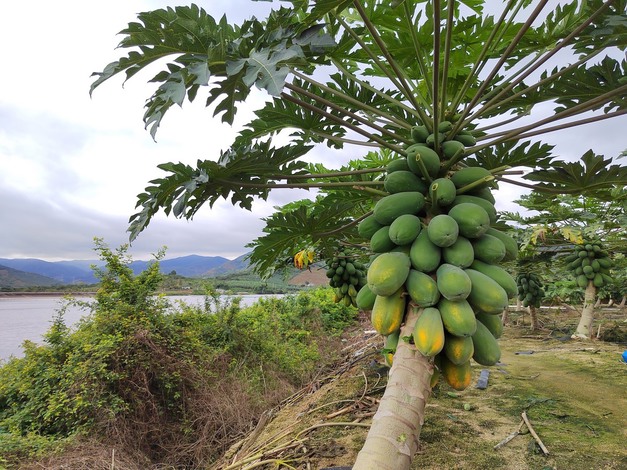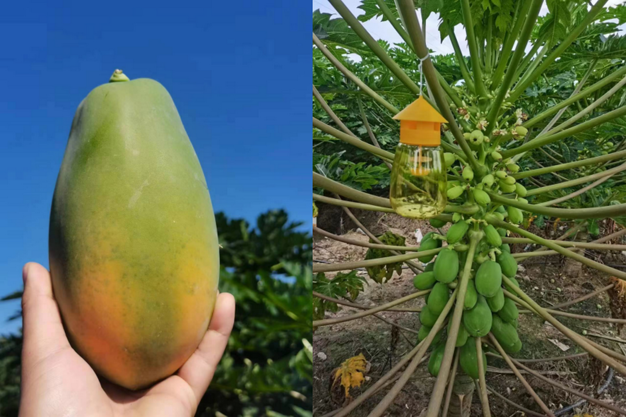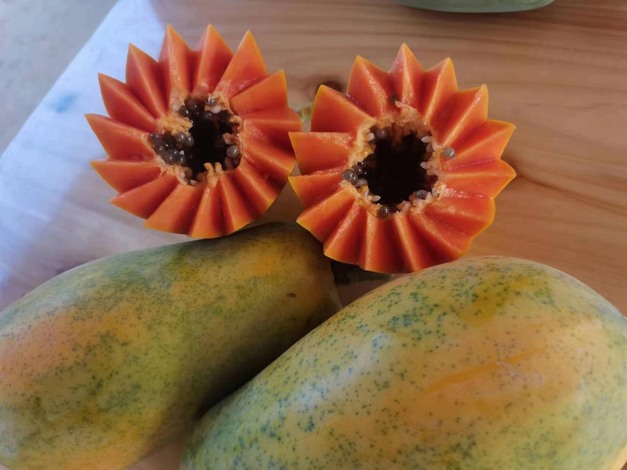"Tree-ripened papayas ripen naturally on trees, and their taste and sweetness are better than forced-ripened papayas. However, due to the high requirements for planting temperature and light, only Sanya in Hainan and some parts of Ledong in China can be planted to reach the standards of tree-ripened papayas," said Mr. Xian Luochao, head of Hainan Yiyuan Fruit Agricultural Development Co., Ltd., which is mainly engaged in the cultivation and sales of Sanya papaya.

In the past two years, the Sanya Agriculture and Rural Bureau has been working to replace the original variety Zhongbai with another variety Daqing. "Compared with the original variety, the Daqing variety has advantages in terms of planting stability, ripeness, and Brix. Winter in Sanya is the ripening period for papaya. When the temperature reaches a certain value, the original variety ripens very slowly; however, Daqing can still continue to ripen, with a good taste and a stable Brix of 14-15. Therefore, the cultivated Daqing ripe papaya tastes better and is highly recognized by the market." Xian analyzed the reasons for changing varieties.
 Right: Hanging fruit fly trap bottle to prevent fruit flies from attacking ripe papayas on a tree
Right: Hanging fruit fly trap bottle to prevent fruit flies from attacking ripe papayas on a tree
"In this year's production season, the price of Daqing papaya is 50% higher than that of the previous variety, and the sales volume has increased by four times. At present, we operate the order model for Daqing varieties. "
According to Xian, two years ago, Daqing accounted for very little in Hainan papayas, but this year, nearly 90% of the papaya bases in the Sanya production area have been replaced with Daqing varieties. "Last year, the planting area of Daqing in Hainan Province was less than 1,000 mu, around 66 ha; this year, the production area in Sanya alone has reached 3,000 mu, around 200 ha. Several production areas outside Sanya are also gradually changing varieties."

Sanya papaya goes on the market from mid-October to May of the following year. It can be sold in a staggered manner from June to November in other production areas, which is also one of the sales advantages of Sanya papaya. Regarding the market performance of the production season in the first half of this year, Xian said: "Sanya papaya sales have always been smooth. This year's production season is ideal, and is in short supply."
Talking about the planning for the new production season, Xian said: "The Sanya Papaya Association was established last year and is applying for the registration of the Sanya Papaya Landmark. It is currently planning to formulate a unified planting standard and order price at the orchard for the new production season. It is estimated that a reference sales price will be launched in October, which is helpful to ensure the quality of Sanya papaya and protect the interests of growers."
Hainan Yiyuan Fruit Agricultural Development Co., Ltd. has its own papaya base of 1,800 mu, around 120 ha, and its brand name is "Yiyuanguo". Sales channels include wholesale markets, supermarkets, chain stores, and online e-commerce. "This year, papayas are being sold more in e-commerce, but offline sales are also increasing," Xian added.
